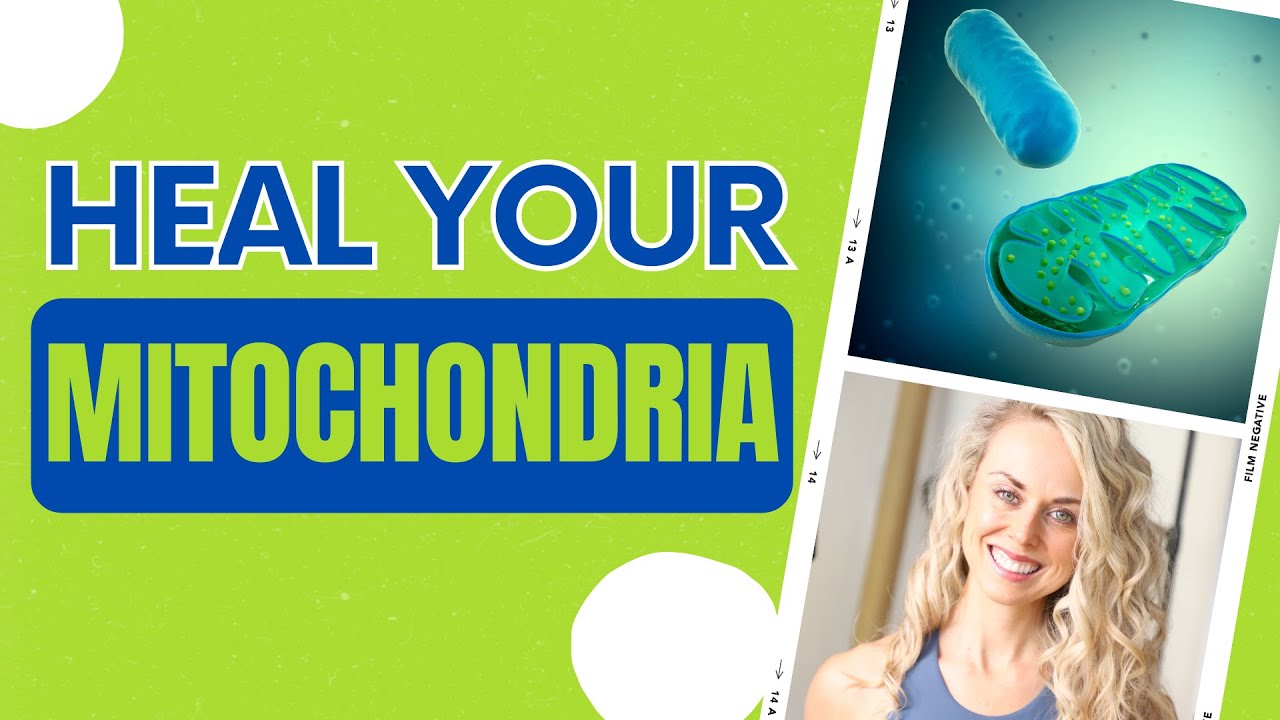Feeling sluggish and drained of energy? We’ve all been there. But what if I told you there’s a way to revitalize your body from within? Welcome to the world of the mitochondrial food plan, a game-changing approach that harnesses the incredible potential of a healthy ketogenic diet to combat mitochondrial dysfunction.
In this article, we’ll embark on a journey to uncover the secrets of this revolutionary method that can supercharge your body’s energy levels and transform your overall well-being. Get ready to say goodbye to fatigue and embrace a new lease on life!
Rather watch or listen?
The Powerhouse of the Cell: Mitochondria
You may have heard in third grade that the mitochondria are the powerhouse of the cell and that couldn’t be more true. Essentially, it is providing us with 90 percent of our energy and it is affecting everything in our body—ultimately is driving how our cells are getting the energy they need to thrive.
Symptoms of Mitochondrial Dysfunction
Symtoms that can be associated with this include:
- headaches and migraines
- chronic fatigue
- chronic pain
- neurodegenerative disease
- cancer
- digestive issues
- sleep disturbances
- And much more!
The Role of Diet in Improving Mitochondria
Although there are a lot of ways to improve your mitochondria, especially through exercise, today’s focus will be on the role of diet and nutrition. The mitochondria food plan, as mentioned, is essentially a healthy ketogenic diet. It is based on the biochemistry of ketosis, which is the generation and accumulation of ketones from the breakdown of fat when carbohydrates are absent. Typically, this refers to consuming under 50 grams of carbohydrates a day or less.
By reducing carbohydrate intake, we can improve our mitochondrial efficiency and how we utilize different fuel sources. Ketosis can be achieved in as little as three days and has various benefits. In addition to addressing issues like chronic pain, headaches, and migraines, it can also aid in weight loss.
Components of the Mitochondria Food Plan
When it comes to the breakdown of our carbohydrates, fats, and protein, this particular diet emphasizes a higher percentage of fats, a low percentage of protein, and a very low amount of carbohydrates, ranging from under 20 to 50 grams per day.
To delve deeper into the breakdown of fats, it is important to consider the distinction between saturated fats and unsaturated fats.
Saturated fats can be found in meats and, potentially, dairy products. On the other hand, unsaturated fats can be obtained from sources such as olive oil, avocado, and walnuts, among others. It is crucial to avoid consuming trans fats, which can be found in vegetable oils, margarine, and similar products.
Measuring Ketones for a True Ketogenic Diet
One of the most important aspects of a true ketogenic diet is measuring ketones in your blood. There are several ways to test your ketones: urine, breath, and blood. The most accurate method is testing your blood.
It’s crucial to recognize that within three days of starting a true ketogenic diet, you should be in ketosis. However, various factors may prevent this from happening. One common factor is consuming too much protein, which is generally considered normal outside of a mitochondrial plan. However, on a mitochondrial plan, excessive protein intake can interfere with ketosis by triggering a process called gluconeogenesis, where protein can be converted into carbohydrates as a fuel source.
In addition to protein, consuming too many carbohydrates can also hinder achieving ketosis. Therefore, it’s important to monitor your ketone levels to ensure you are on track with your ketogenic diet.
Key Takeaway
In summary, my goal today was to give you a small taste of what a mitochondrial plan is and how it can affect you if you are experiencing some kind of mitochondrial dysfunction.
This can be such a powerful tool in your toolbox. When I typically prescribe this for someone, I suggest doing it for 30 days. This duration helps to assess how they’re feeling, ensuring ketosis and determining if this can positively influence them.
There’s a lot of great research on the ketogenic diet, especially as it relates to epilepsy and other neurodegenerative diseases. So please feel free to check those out and dive a little bit deeper into the mitochondrial plan.
Source: Institute of Functional Medicine
If this was helpful, give it a like, give it a share, and make sure to subscribe to our youtube channel, The Movement Paradigm, for weekly tips on mindset, nutrition, and movement. Of course, if you need help on your journey, we would love to hear from you, so please reach out, send us a message, and set up a discovery session, and we will help you on your journey.
Other things that might interest you:

